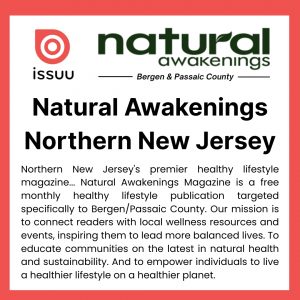LONG-LIVED PETS ~ Anti-Aging Care Aids Youthful Vigor
In human health care, naturopathic doctors offer a specialty called anti-aging medicine. The goal is to restore optimal health to those at midlife and older that seek to prevent or reduce the incidence of diseases often associated with aging.
But when it comes to aging pets, most veterinary doctors fail to focus on the necessary specialized care. In fact, some traditional vets may decline to treat older pets at all. Often, these animals are suffering from chronic diseases and when they are treated, prescriptions may include numerous drugs. As many know, drugs can entail serious, even debilitating side effects, further deteriorating the prospects for sustained health.
Owners may thus find themselves spending a lot of money maintaining their pets in a chronic state of ill health with little hope for improvement. Animals that might benefit from surgery for problems ranging from dental disease to tumors may not receive ameliorating care when the family vet simply considers them “too old” to invest in or pull through surgery.
A Better Alternative
For an enlightened holistic vet, no pet is too old to warrant and benefit from proper health care. By instituting the correct care and focusing on anti-aging efforts, health can be improved and often restored, with the added advantages of reducing unnecessary medications and increasing their lifespan.
As an example, most doctors expect larger breeds of dogs to live 10 to 12 years, but with informed care, these same dogs can typically live 15 to 16 years. Smaller dogs and cats typically have a life expectancy of 12 to 15 years; using an anti-aging approach, such pets routinely live 18 to 20 years or longer, in good health and with a good quality of life.
Exemplary Treatment
Here’s how the team at Paws & Claws Animal Hospital, in Plano, Texas, successfully approaches anti-aging medicine.
Beginning at 5 years of age, all pets—including dogs, cats, other small mammals, birds and reptiles—are screened via a physical examination and special blood and urine tests twice a year, with a focus on bionutritional analysis of results. Abnormal results indicating some risk, even slight ones, often ignored by mainstream medicine, are treated using vet-specified natural medicines that help return biometric values to normal and slow down the progression of problems that could, if untreated, turn into serious diseases.
Dietary evaluation, including a bionutritional analysis, ensures that the pet is eating what’s most appropriate for its age, breed and health status.
Potential dental and other oral issues are treated aggressively and early, because they are the most common source of infection and inflammation contributing to poor bodily health, including diabetes and diseases of the liver, kidneys, heart and lungs.
A review of prior medications confirms or adjusts proper use. In most cases, some of these medications can be eliminated or replaced as needed with natural therapies that have the same clinical effect, but without the possible side effects associated with chronic use of medical therapies.
Natural supplements, which can benefit all pets, also are reviewed and/or prescribed. Most older pets benefit from supplementation with phosphatidylcholine, vitamins and minerals, fatty acids, glucosamine and other elements to support thyroid and adrenal functions. Paws & Claws also favors the herbal remedy Healthy Qi to support the immune system of any ill or older pet; astragalus, green tea, gotu kola and ginseng ingredients give an extra boost toward achieving homeostasis and improved quality of life.
Like human senior citizens, pets in their golden years deserve dignified specialized care that allows them to live more happily and peacefully.
Shawn Messonnier, a doctor of veterinary medicine practicing in Plano, TX, is the award-winning author of The Natural Health Bible for Dogs & Cats and Unexpected Miracles: Hope and Holistic Healing for Pets. For more information, visit PetCareNaturally.com.





























